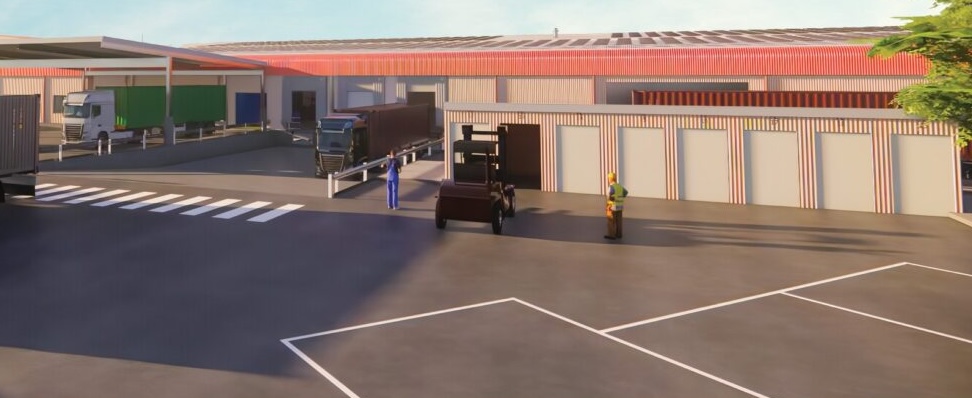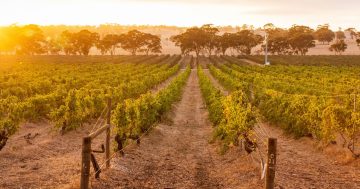
An artist’s impression of the new biosecurity treatment facility in South Australia. Photo: SA Produce Market.
South Australian producers will no longer need to send their fruit and vegetables out of state for treatment following the construction of a new $50 million post-harvest facility.
Work will begin on the new inspection, quarantine and treatment facility in February 2024. It will be built on the site of the SA Produce Market in Adelaide’s north.
Once completed, the new facility is expected to unlock an additional $100 million in fresh produce exports over a five year period and create up to 172 new jobs.
It is also expected to reduce transport costs, increase shelf life of produce, improve profitability and, in turn, lower product wastage and reduce the cost of supermarket produce.
The $50 million industry-led initiative is funded through $9.8 million from the Federal Government, $4.2 million from the SA Government and the remaining $36 million from industry.
SA Produce Market CEO Angelo Demasi thanked the state and federal governments for their investment in the facility he said would greatly benefit local producers and consumers and the state’s economy.
“SA Produce Market is excited to host this world leading precinct which will enable our industry to access state-of-the-art post-harvest treatment services, enabling us to deliver quality local produce even more efficiently and sustainably to our South Australian customers,” he said.
“This project also represents a significant step towards making our produce even more attractive to our existing global customers.
“South Australia will soon become an attractive destination for global produce companies looking to establish a presence in the Asia-Pacific region, strengthening our industry’s position in the global market.”
SA Trade and Investment Minister Nick Champion agreed.
“This facility, the first of its kind in the nation, will ensure South Australia’s premium, clean, and green produce – the envy of the world – is protected,” he said.
“The importance of safeguarding our environment for agribusiness and exports cannot be understated and will only bolster our international reputation as we are able to get produce to market faster.”
SA growers have previously faced challenges in selling to certain markets which have restrictions based on what pests and diseases are prevalent in the region where the fruit is grown.
For example, a current Q-Fly outbreak in parts of the Riverland means produce cannot be sent to other parts of SA, Tasmania, or WA where Q-fly does not have a presence, unless it is treated.
The new facility will use pressure cooling and treatment technology to ensure produce coming from fruit fly impacted areas are inspected, quarantined and treated, so it can be distributed safely.
Federal Agriculture and Fishers Minister Murray Watt said federal government funds, supplied under the Building Resilience to Manage Fruit Fly package, were earmarked with this precise objective.
“There is no one-size-fits-all approach to tackling fruit fly, so the funding …. will be aimed at several different methods of controlling this pest, including through post-harvest treatment,” he said.
“These projects will contribute to driving down fruit fly pest pressure, reducing fruit fly incursions into South Australia and building industry resilience to manage this pest.
“The package will give us a huge boost towards our goal of completely eradicating our current outbreaks and retaining South Australia’s fruit fly free status, as well as reducing the impacts of fruit fly nationally.”
Federal funding is also being provided to build and expand sterile insect technique facilities, update interstate trade protocols, roll out electronic plant health certification and put in additional roadblocks to protect the Riverland pest-free area.
SA Primary Industries and Regional Development Minister Clare Scriven said the funding would protect the state’s $1.4 billion horticulture industry and ensure a stable supply chain.
“Having this technology here also opens the door to other potential and exciting benefits to the state from sectors such as health and medical, space and defence,” she explained.




